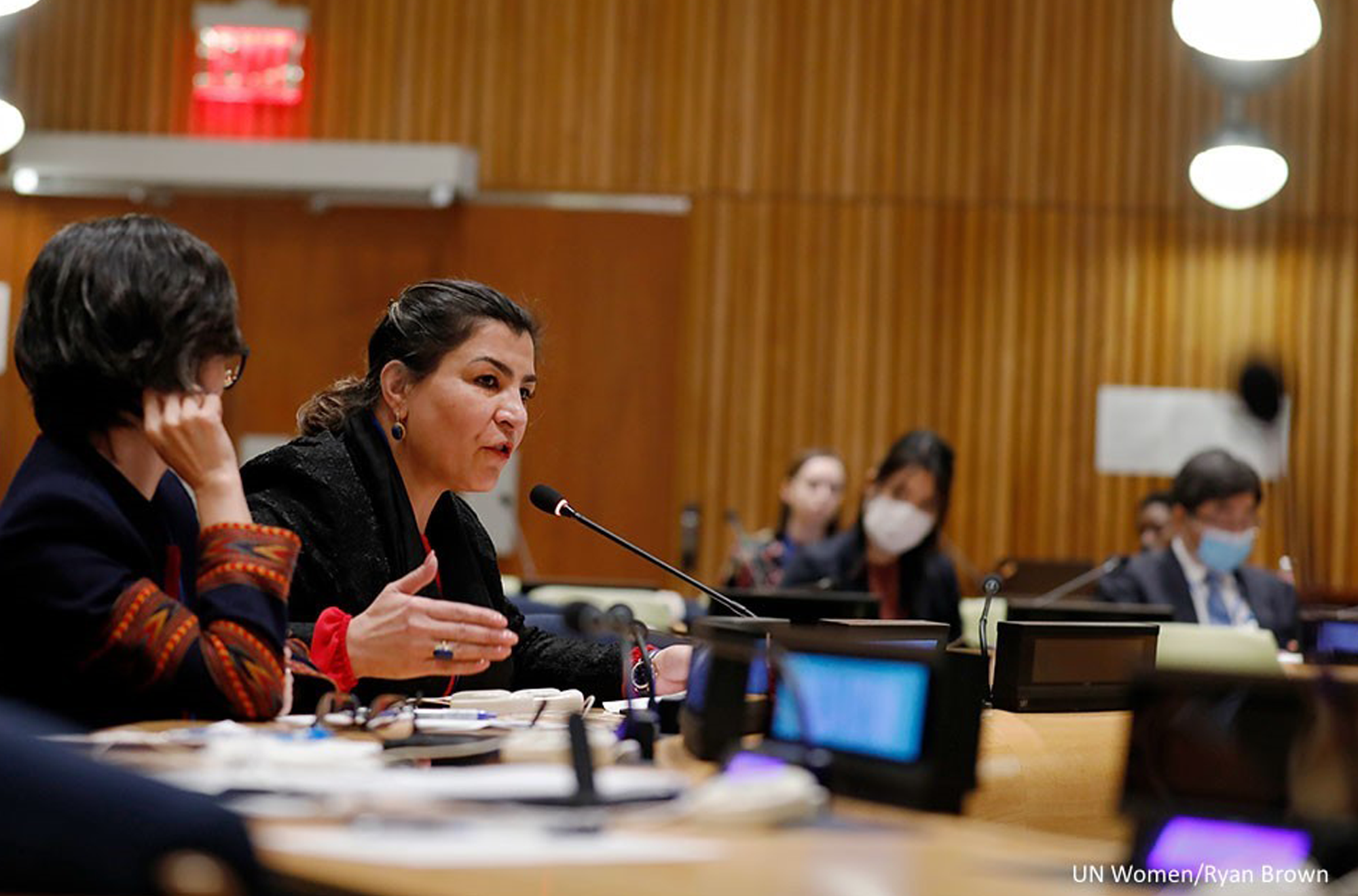
Horia Mosadiq delivers her intervention to the UN. PHOTO: UN Women/Ryan Brown
On 16 March 2022, at the United Nations, Afghan women leaders warned that the human rights situation in Afghanistan is dire and has rapidly deteriorated since the Taliban’s takeover seven months ago. Taliban authorities have led and overseen targeted attacks on peaceful protesters, extrajudicial killings, the suppression of independent media, and the detention and disappearance of women’s rights activists, including ethnic and religious minorities. Such abuses and violations are occurring with impunity.
To date, the United Nations Assistance Mission in Afghanistan (UNAMA) has failed to address the dire human rights situation in Afghanistan. As UNAMA is now the primary international entity operating on the ground – following the shuttering of embassies and international organizations – its effectiveness is more critical than ever.
The women leaders urged the Security Council to renew a robust and inclusive United Nations Assistance Mission in Afghanistan (UNAMA) mandate, which expires on 17 March 2022.
Afghan women activists and journalists are routinely being detained, tortured and killed, girls are being prevented from attending secondary schools, and women are being banned from most paid professions and confined to their homes. This is a critical moment for the international community to act and provide urgent support to the Afghan people, including women, girls, and marginalized groups. Such action will only become harder if the UNAMA mandate is allowed to expire.
In cooperation with UN Member States, the Georgetown Institute for Women, Peace and Security organized a session with Afghan women leaders to amplify their calls to action. Top-lines include ensuring that UNAMA uses its good offices to:
- Urge the Taliban to uphold international human rights standards including by promoting inclusive governance and meaningful participation of women and minorities at all levels.
- Monitor and report on the Taliban’s adherence to international human rights instruments.
- Maintain close contact with Afghan civil society, including women-led civil society groups, and facilitate their meaningful engagement in human rights reporting and accountability.
- Incorporate a gender analysis in its monitoring mechanisms and promote a survivor-centred approach to sexual and gender-based violence; access to quality education; freedom of speech; access to justice; and right to employment.
- Coordinate inclusive humanitarian assistance that ensures equitable distribution to all Afghans and promotes the inclusion of women and minorities in the distribution process.
View the full list of recommendations for UNAMA renewal.
View the full recording of the event at the United Nations.
FULL REPORT: Onward for Afghan Women, an initiative of the Georgetown Institute for Women, Peace, and Security. Information from an email from this Institute, 15 March 2022.



